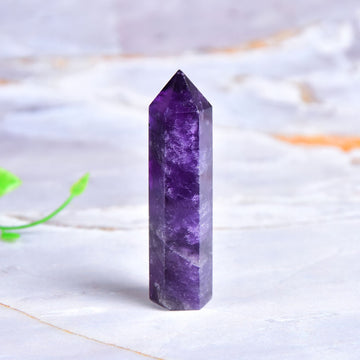For centuries, cultures have relied on the healing powers of nature, which are still in practice today. Everything from the use of natural hot springs to the concept of forest bathing to connect more fully with nature, each ritual or technique is designed to bring balance in the present moment. Nature is quite literally our foundation and when there’s a disconnect from it, it affects all areas of our well-being.
A significant example of the importance of connecting with nature by spending time outdoors as part of your self care journey is animism. By definition, animism is the attribution of a soul to plants, inanimate objects, and natural phenomena. Various communities have their own unique rituals and beliefs when it comes to the value of nature as Earth’s living force.
In the Western world, we refer to the environment as simply “Mother Nature,” when speaking of the effects of climate changes and seasonal events. Taoism reflects a philosophy of “going with the flow” per a cosmic force, the Tao, that flows through, binds, and releases all things. Hindu, Buddhist, and Native American cultures all hold a great reverence for natural spirits and what they bring in terms of healing and higher wisdom.
However, even without a specific belief system or ceremonial practices, you can feel the gravity of nature every time you see a beautiful sunset, enjoy the peaceful silence of a walk in the forest, or climb to the top of a mountain. There is a visceral sense of calm that comes from the connection found in nature. Additionally, from a non-spiritual viewpoint, there is proven research that shows the power of our environment and how it affects our health.
Through the vitamin D we receive from the sun and the oxygen we receive from the trees and ocean, it all contributes to our sense of wellness, whether we stop to appreciate that concept or not. When we make the ties more frequently and purposeful, it delivers a greater balance and harmony to our lives.
How to Become More Connected with Nature
The simplicity of breathing in fresh air and feeling sunshine on your face is an easy way to begin connecting with nature. Showing gratitude for those experiences also allows you to notice natural wonders you may have missed or overlooked before. Nature serves as an ideal backdrop for many other self care practices like yoga and meditation to further enhance the experience.
Forest Bathing to Focus on the Present Moment
Japan has a natural therapy called shinrin-yoku, or forest bathing, which calls for long, peaceful walks through the forest. It allows you to distance yourself from everyday noise and chaos as you meditate or become mindful in the present moment. As a result, this leads to lower blood pressure, reduced stress, and an overwhelming sense of calm.
Extended walks with few distractions don’t have to be limited to forests alone. This can apply to walking along the coast, through a nearby park, or even around your own neighborhood, if you are focused on being present in nature and showing appreciation for your surroundings.
Achieving New Heights with a Nature Hike
Nature is the difference between walking miles on a treadmill and hiking up a majestic mountain. Both require similar levels of activity, but being immersed in the elements brings a higher sense of achievement. Outdoor walks or hikes are good for your heart health and release endorphins for a burst of natural good feelings.
There’s research that shows trying a new activity is protective against cognitive decline, which is one reason for the swell of accomplishment you feel after reaching the end of a trail or top of a climb versus exercising on a piece of gym equipment. It registers the memory in your brain, the scenery, the smell, the feeling, and bonds you to nature for a specific, irreplaceable experience.
Balancing Your Circadian Rhythm for Restless Sleep
People who live in areas where there are low levels of sun during several months of the year often suffer from seasonal affective disorder. The lack of sunlight throws off the body’s natural circadian rhythm, which helps a person sleep more soundly at night.
Lack of sleep then leads to a slew of other physical and mental health symptoms that can increase the probability of illness and disease. Without the constant energy provided by nature, there is a detrimental effect on how we function in Everyday Life. When there is a lack of sun and the temperatures are colder, there’s less motivation to do outdoor activities spend time outdoors, which is often disruptive of a routine of self care.
Benefiting from the Energy of Natural Sources
The interconnectivity of people to nature is already present. It’s when there’s a disruption that things become off-balance. From a basic level, if you’ve ever been stuck indoors for hours on end, have you taken a walk outside as a way to feel refreshed? That’s self care in nature at its finest.
However, the connection can be far more profound, if you are intentional with your actions. Taking time to incorporate nature as part of your daily life and self care journey is important since it elevates the experience by allowing you to receive its energy and support your spiritual growth.
Sources:



































